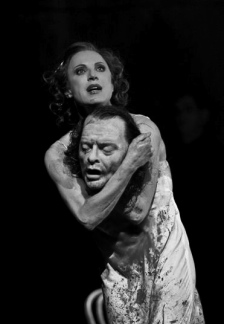
Tonight I’ll be attending a performance of Richard Strauss’s opera Salome at the San Francisco Opera. Despite the sacrilegious themes and radical music, I doubt there will be any protests. Somehow, opera –in the United States at least– has the ability to present some of the most radical art in the guise of the most conservative. Alex Ross, in his excellent book The Rest is Noise, recounts the circumstances surrounding the second performance of the opera which Strauss himself conducted on May 16, 1906 in Graz, Austria:
…word had got out that Strauss had created something beyond the pale–an ultra-dissonant biblical spectacle, based on a play by a British degenerate whose name was not to be mentioned in polite company, a work so frightful in its depiction of adolescent lust that imperial censors had banned it from the Court Opera in Vienna.
The British degenerate they were referring to was a fellow named Oscar Wilde. The opera is based on his play, written in French, called Salomé. In attendance at that performance were Giacomo Puccini, Gustav Mahler, Alban Berg, the fictional character Adrian Leverhkühn from Thomas Mann’s Doctor Faustus, and very possibly a 17 year old Adolf Hitler. The performance was one of the defining moments at the dawn of modern 20th century music.
One hundred and three years later, the work still has the power to shock and disturb people. While the dance of the seven veils may get most of the press, the moment where Salome declares her love for the severed head of John the Baptist is complex blend of power, lust, religion and madness. So dust off your tux, opera, as we all know, is a civilized affair.